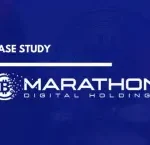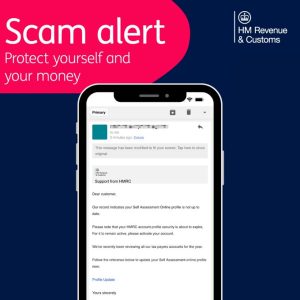How to Avoid HMRC Government Gateway Scam: Email phishing scams, call or text! [2023]
HMRC alert on Government Gateway Scam phishing activities going on! HMRC, Her Majesty’s Revenue and Customs, is warning that scammers are using fraudulent methods to steal personal information from unsuspecting victims. One common scam that has been reported involves fraudulent emails and text messages that claim the recipient must pay customs duty in order to receive a valuable parcel.
Table of Contents
Government Gateway Scam – Email Phishing Scams
Scammers often create fake emails that look like genuine messages from HMRC. These emails may include official-looking logos, headers, and footers, making it seem as if the message is legitimate. However, there are several telltale signs that an email may be a phishing attempt:
1. Misspellings and poor grammar: Phishers often do not take the time to proofread their messages, so be on the lookout for grammatical errors and misspellings.
2. Unsolicited messages: If you receive an email from HMRC asking for personal information or payment without providing any context, it is likely a scam.
3. Unrealistic demands: HMRC would never demand payment without going through the proper channels. If you receive a demand to pay customs duty in order to receive a parcel, be suspicious.
4. Unsecure links: Phishers may try and get you to click links that take you to a fraudulent website. Before clicking on any links, it is always recommended to hover your mouse over the link to see where it leads.
Government Gateway Scam – Call or Text Scams
In addition to email phishing scams, HMRC also warns about fraudulent calls or text messages. These scammers may pose as HMRC agents, claiming that there is a tax issue or that an arrest warrant has been issued.
1. Spoofed phone numbers: Scammers may display fake phone numbers or use tactics to make it appear as though the call is coming from a legitimate HMRC number.
2. Demands for sensitive information: Be wary of any caller who asks for personal information such as your Social Security number, bank account details, or credit card details. HMRC will never ask for this information over the phone or text message.
3. Fear tactics: Scammers may use fear tactics, such as threatening legal action or deportation, to pressure you into acting quickly or providing personal information.
Safety Measures:
To avoid falling victim to these HMRC Government Gateway scam, it is crucial to be vigilant and aware of the following safety measures:
• Be cautious of unsolicited messages: If you receive an unexpected email or text message claiming to be from HMRC, do not open it or click on any links provided. Instead, forward the message to HMRC’s phishing email address (phishing@hmrc.gov.uk) or phone number (0800 540 7160) to report it.
• Check the sender’s email address: Before opening any emails, take a moment to carefully review the sender’s email address. HMRC will never send emails from personal email addresses or from addresses that differ from their usual format (e.g., @hmrc.gov.uk).
• Avoid clicking on links: As noted above, scammers may attempt to direct you to a fraudulent website. Avoid clicking on any links or downloading attachments from unexpected emails or text messages.
• Verify the caller’s identity: If you receive a call claiming to be from HMRC, hang up and call HMRC directly using their official phone number (0300 200 3319). Legitimate HMRC agents will never ask for payment over the phone without providing a reference number and will never threaten legal action or deportation.
By following these safety measures and staying vigilant, you can protect yourself from falling victim to HMRC Government Gateway scam. Remember, always trust your instincts and never provide personal information or payment details unless you are absolutely sure it is a legitimate request from HMRC.









